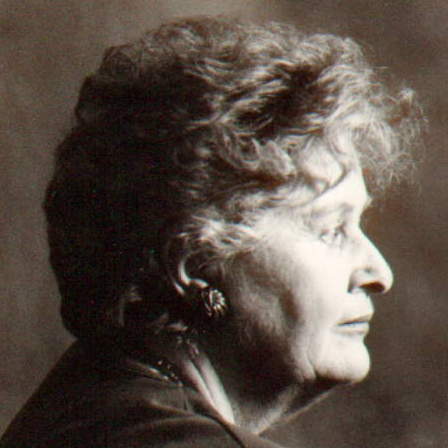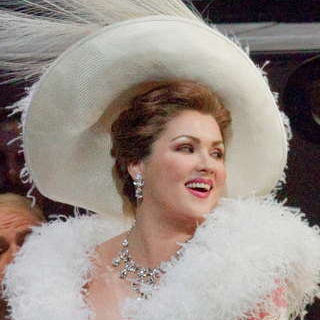- NZSO
- Anatoli Ljadow
- Andreas Nicolai Tarkmann
- Gubaidulina
- Charlotte Durey
- Martin West
- Craig Meager
- Jack Capstaff
Teatro dell'Opera di Roma Re-opens
GIUSEPPE PENNISI was in a box for the opening night
In Italy, theatres and concert halls re-open after more than a year of closure, excluding the short summer season in outdoor venues, and with strict protocols in terms of distancing artists and the public. At the end of each performance, audiences and artists can return home by the 10pm curfew.
In Rome, on 28 April 2021, Teatro dell'Opera reopened its doors to the audience with a symphonic concert conducted by maestro Michele Mariotti dedicated to Verdi.
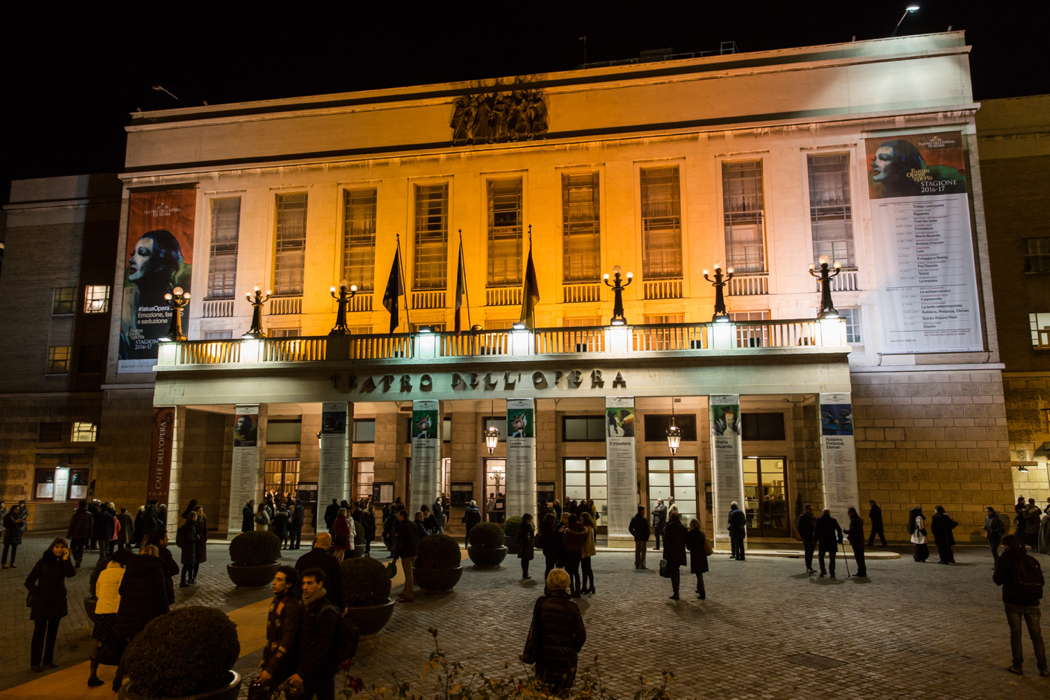
Teatro dell'Opera di Roma. Photo © 2016 Yasuko Kageyama
The program included Verdi's dances from Don Carlos, Macbeth and Les vêpres siciliennes, a joyful concert, in which Mariotti showed that he was ready to collect the legacy of Riccardo Muti as the greatest Verdi conductor on the market. Only five hundred people were admitted; the Teatro dell'Opera normally hosts one thousand five hundred. My wife and I had box 14 first tier on the right side just for the two of us; the box can take six persons.
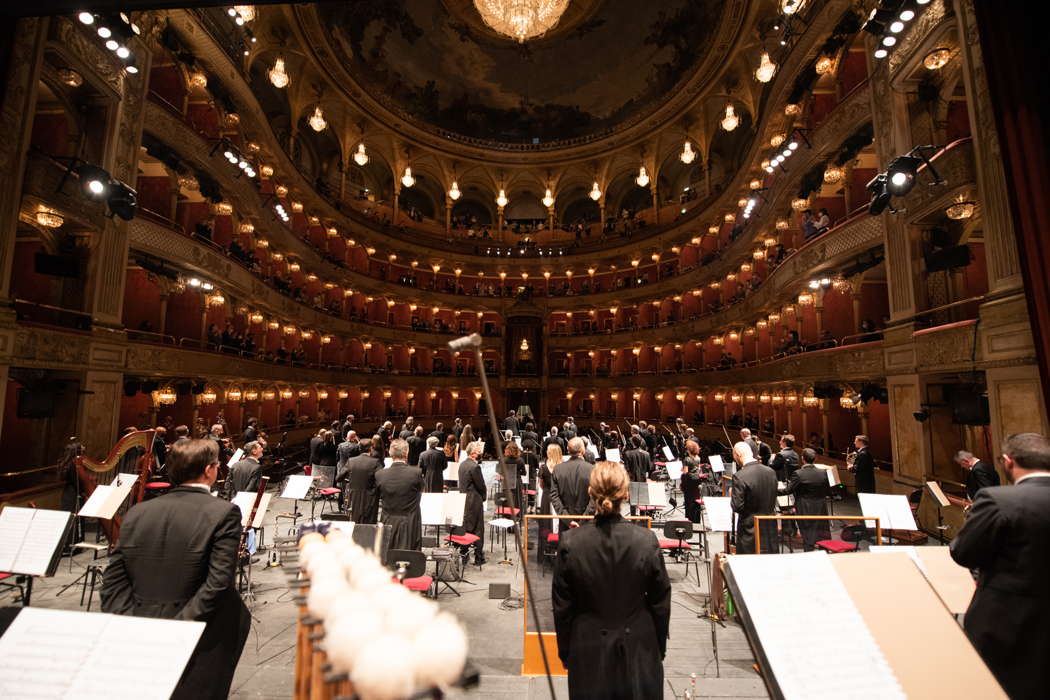
The orchestra of Teatro dell'Opera di Roma on 28 April 2021. Photo © 2021 Fabrizio Sansoni
The programme was prepared within a few days as soon as the order-in-council on reopening was announced. Maestro Mariotti was also in Rome because he was engaged in the production, in concert form, of Verdi's Luisa Miller which was broadcast live on Rai Radio 3 on 30 April 2021 and is available, from 8 May, streamed on the Teatro dell'Opera website.
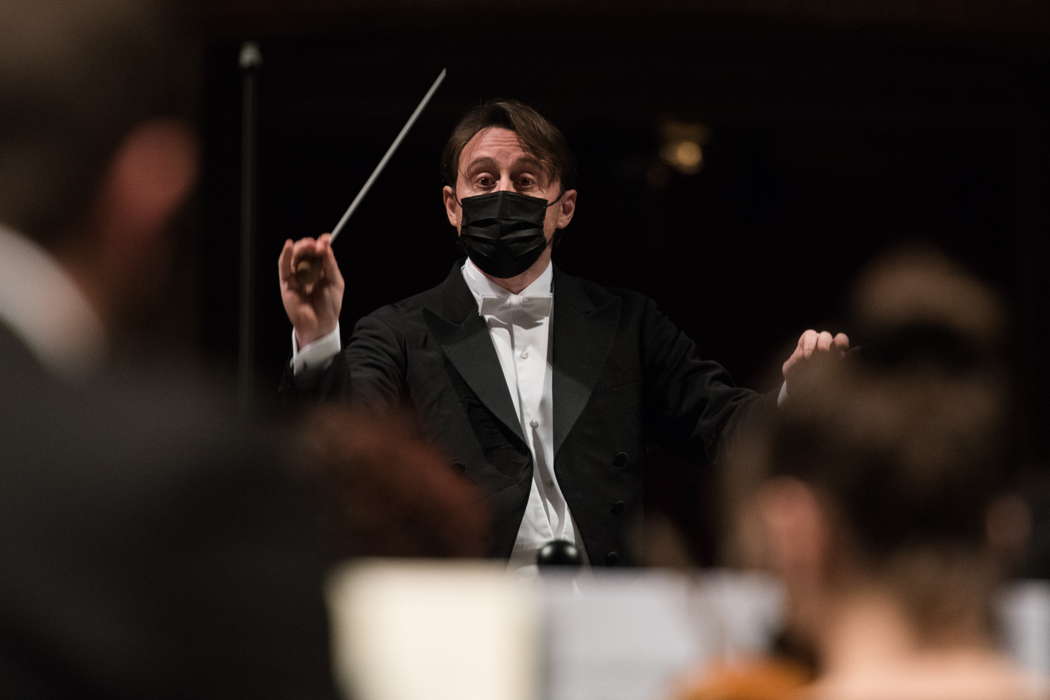
Michele Mariotti conducting Verdi's Luisa Miller. Photo © 2021 Fabrizio Sansoni
It was a celebratory concert for the reopening but with a program with its own integrity of a good musical proposal; the duration was about eighty minutes, as necessary to bring back audiences, artists and workers before the 10pm curfew. The integrity lies in the fact that Verdi's dances - especially those written for the works commissioned for what the composer called la grande boutique or the Paris Opéra) - are little considered. The recently-passed-away musicologist Paolo Isotta revalued them in his latest book, but often - especially that of the third act of Don Carlos, entitled La Pérégrine - they are not even performed for reasons of duration and scenic action – as the musicologist Massimo Mila recalled in his 1980 book on Verdi. In the Don Carlos production staged in Salzburg in 2013, La Pérégrine was cut, despite the show being organized with a long interval and allowing the audience to go to dinner.
I've heard La Pérégrine in a live Don Carlos performance only once: in a Boston Opera production with direction and conducting by that devil Sarah Caldwell who loved very long works - Wagner's Rienzi, Prokofiev's War and Peace - seldom staged. It was well inserted into the stage action. I must admit that I found Claudio Abbado's 1985 Don Carlos recording for Deutsche Grammophon boring.
At the opening of the concert in Rome, Michele Mariotti, with a wide arm and almost dancing gracefully on the podium, makes La Pérégrine one of the most French works Verdi wrote. This must be not understood in the negative sense of the term but as an indication of the surprising mastery to overcome the models and placing distances from the rather modest dances of Ernani, Rigoletto and La Traviata. Mariotti and the orchestra highlit the complexity of a ballet - although the program does not say so - in five concise numbers: introduction, andante and waltz, variations, pantomime and final joke. Space is given to the very short solo pieces - violin at the beginning. In short, this is a composition of sensual elegance as befits a premise to the scene in which Don Carlos discovers that his masked interlocutor is not the beloved stepmother Queen Elizabeth but Princess Eboli eager to take him to her bed.
The second piece, Macbeth's dances, was written for the Paris Opéra too in 1865. The French version of the opera, in Italian, is the one normally performed. (There was a rare opportunity at the Verdi festival in Parma in 2020 where the work was presented in a concert edition in French.) The performance of Mariotti and the Orchestra of the Teatro dell'Opera highlit the difference with La Pérégrine: there is no sensual elegant French - as, for example, in Gounod's Faust, staged in Paris a few years earlier in 1859, even in the moments when Mephistopheles is the protagonist – but a lucifer-like atmosphere of terror and tight tempos.
The ballet Les quatres saisons from the second scene of the third act of Les vêpres siciliennes is a complex score which the Teatro dell'Opera orchestra is familiar with because the original full version of the opera was staged at the opening of the 2019-2020 season. (Read my review: Bold and Engrossing, 14 December 2019.) Opinions differ. On the one hand, after ballet it is difficult to re-enter the dramatic tension of the opera. On the other, it is a piece characterized by a very accurate orchestration with moments especially designed for woods. Three initial chords sign the arrival of the God Janus, who presides over the year. Winter starts with a bright theme and then darkens. Very delicate Spring follows as well as a Summer in which popular themes are intertwined. It ends with an increasingly bleak autumn which precedes the dramatic finale of the act. Mariotti and the orchestra's performance was of a great level.
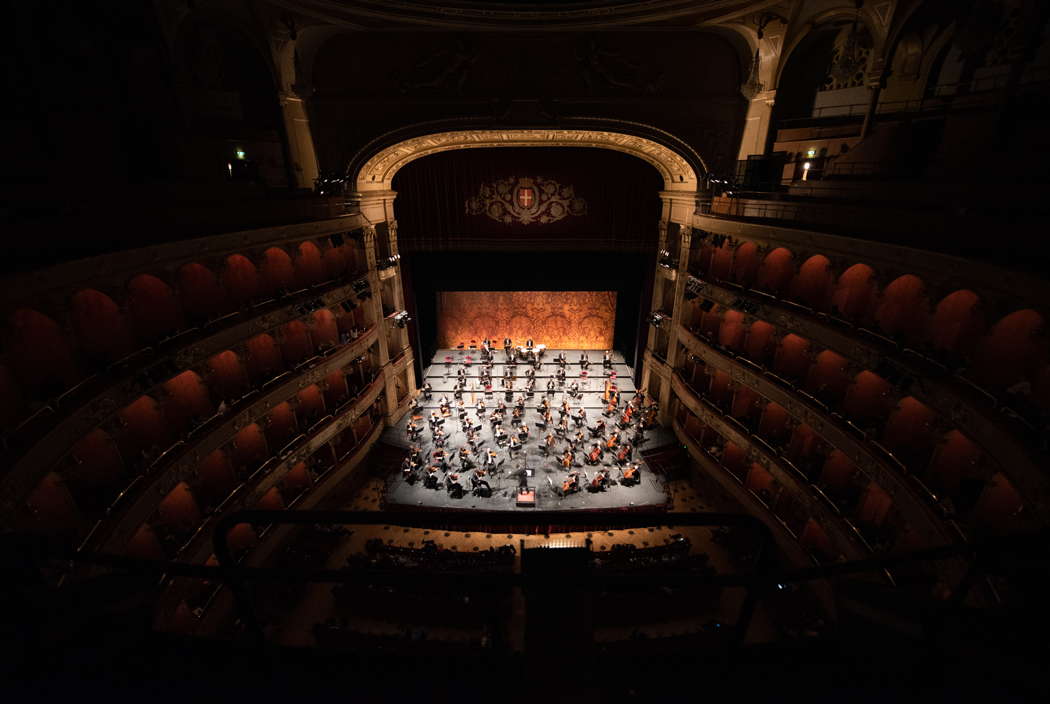
The orchestra of Teatro dell'Opera di Roma on 28 April 2021. Photo © 2021 Fabrizio Sansoni
There was very warm applause and accollades. Encore requests could not be met due to the curfew.
Copyright © 3 May 2021
Giuseppe Pennisi,
Rome, Italy

FURTHER ARTICLES ABOUT TEATRO DELL'OPERA DI ROMA


